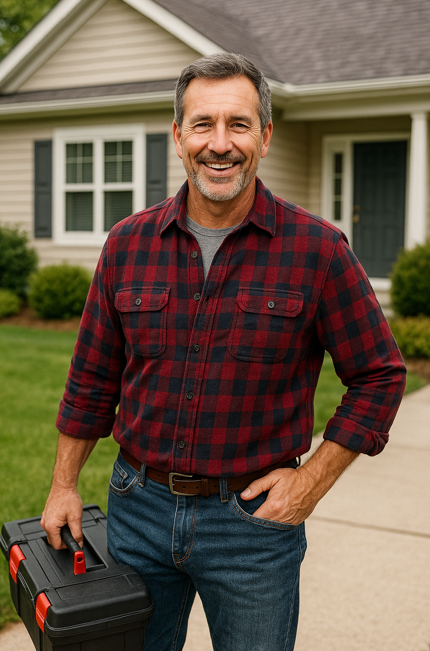Summer heat can hit harder in commercial and industrial settings than in a typical home. Warehouses, construction sites, manufacturing floors, and outdoor event spaces all demand powerful, reliable cooling. Whether you’re managing a busy workspace or overseeing a large-scale project, having the right air conditioning solution isn’t just about comfort—it’s about productivity, safety, and equipment longevity.
In this guide, we’re diving deep into commercial outdoor air conditioners and industrial portable air conditioners, helping you understand the options, features, and maintenance tips to keep your spaces cool and efficient.
Understanding Commercial Outdoor Air Conditioners
Commercial outdoor air conditioners are designed to handle larger spaces and harsher environments than residential units. They are built to operate efficiently in open areas, patios, semi-enclosed warehouses, or even temporary event setups.
Key Features of Commercial Outdoor AC Units
-
High Cooling Capacity – Usually measured in BTUs, these units need the power to cool large areas. A higher BTU rating ensures effective temperature control.
-
Durability – Outdoor units face weather exposure, so look for corrosion-resistant exteriors and robust construction.
-
Mobility Options – Some units come with wheels or skids to make relocation easier.
-
Energy Efficiency – Units with a high EER (Energy Efficiency Ratio) save money on electricity while maintaining performance.
Top Commercial Outdoor Air Conditioner Options
-
OceanAire OPAC Series: OceanAire’s OPAC Series delivers industrial-grade outdoor cooling in a portable package. These units are weather-resistant and ideal for outdoor commercial applications, from event spaces to open-air production areas.
-
Global Industrial 5-Ton Portable Air Conditioner: This heavy-duty unit, with 60,000 BTUs of cooling power, can handle large areas like warehouses or factories. Its Global Industrial model offers mobility and durable construction, making it a top pick for demanding environments.
-
Trane Horizon Dedicated Outdoor Air Systems: Trane’s Horizon series is designed for larger commercial spaces needing consistent, energy-efficient cooling. With options for precise ventilation, it’s perfect for environments that demand both airflow and temperature control.
Industrial Portable Air Conditioners: Power on the Move
Industrial portable air conditioners are essential when you need flexibility. Unlike fixed commercial units, these can move between spaces, providing spot cooling where it’s most needed.
Features to Look For in Industrial Portable ACs
-
High BTU Ratings – Industrial areas can be massive, so BTU capacity is critical. Units ranging from 20,000 to 60,000 BTUs are common.
-
Durability & Construction – These units face rough environments, including dust, moisture, and heavy equipment traffic.
-
Portability – Large casters, handles, and compact design make relocation easier, essential for worksite versatility.
-
Maintenance-Friendly Design – Removable filters, easy-access components, and simple drain setups help reduce downtime.
Leading Industrial Portable AC Units
-
MovinCool Climate Pro Series: MovinCool’s Climate Pro Series is a workhorse for industrial environments. It’s designed to handle demanding conditions, from data centers to heavy machinery spaces, and includes flexible airflow options.
-
KwiKool 60,000 BTU Portable Air Conditioner: Built for expansive areas, the KwiKool provides consistent cooling for large industrial spaces. Its rugged construction ensures it can withstand the day-to-day wear and tear of active work sites.
-
HayWHNKN Industrial Portable Air Conditioner: This versatile unit combines cooling and dehumidification, ideal for environments with heat-sensitive equipment or moisture concerns. Its portability allows it to be moved from site to site with ease.
Choosing Between Commercial Outdoor and Industrial Portable AC Units
Selecting the right system requires evaluating your specific needs:
-
Space Size & Configuration: Larger spaces with multiple zones may benefit from a commercial outdoor unit, while smaller, temporary, or flexible setups may call for portable industrial ACs.
-
Environmental Conditions: Outdoor units must withstand weather, while portable industrial units must tolerate dust, vibrations, and heat from machinery.
-
Energy Efficiency: High-efficiency units reduce operating costs, especially when running extended hours in commercial or industrial settings.
-
Mobility Needs: If your cooling needs change frequently, portability is key. Conversely, if the location is fixed, a durable outdoor unit may be ideal.
Installation & Maintenance Tips
Proper setup and maintenance are critical to ensuring performance and longevity.
Installation Tips
-
Ensure proper venting for units with exhaust requirements. For outdoor units, make sure there’s clear airflow around the condenser.
-
Level placement is essential for portable units to avoid water leakage.
-
Follow manufacturer recommendations for electrical requirements, especially for high-BTU industrial units.
Maintenance Recommendations
-
Regular Cleaning – Clean filters and coils frequently to maintain airflow and efficiency.
-
Check for Obstructions – Remove debris or dust that could block vents or outdoor airflow.
-
Seasonal Storage – Cover or store portable units during off-seasons to protect against damage.
-
Professional Inspections – Schedule periodic inspections, especially for units in high-demand commercial or industrial applications.
Applications for Commercial Outdoor & Industrial Portable ACs
These units aren’t just for comfort—they protect equipment, maintain productivity, and even safeguard health. Common applications include:
-
Warehouses & Factories – Keeping workers and equipment cool in high-heat environments.
-
Outdoor Events & Tent Cooling – Portable solutions can transform open-air events into comfortable experiences.
-
Construction Sites – Industrial units provide relief for crews and protect sensitive equipment.
-
Server Rooms & Electronics – Portable ACs can act as supplemental cooling for sensitive areas.
For those looking to combine industrial-grade portability with residential-style comfort, check out the Goodman 3 Ton 14.5 SEER2 R-32 Bundle for whole-home or larger commercial system needs.
Final Thoughts
When it comes to beating the heat in commercial and industrial spaces, choosing the right air conditioning solution is crucial. Commercial outdoor air conditioners and industrial portable air conditioners each have their place depending on the environment, mobility needs, and space requirements. By considering cooling capacity, durability, energy efficiency, and ease of maintenance, you’ll ensure comfort, productivity, and reliability all summer long.







